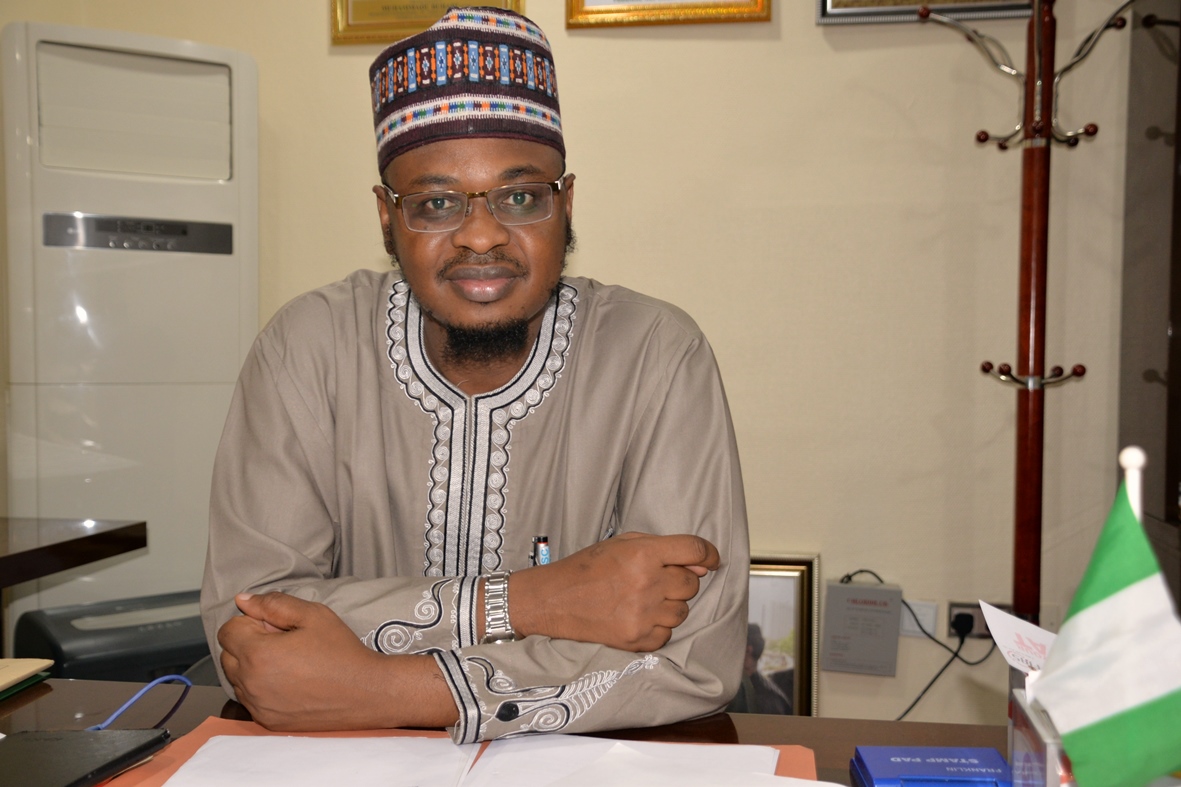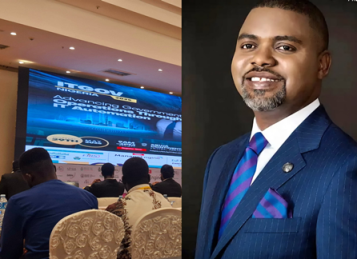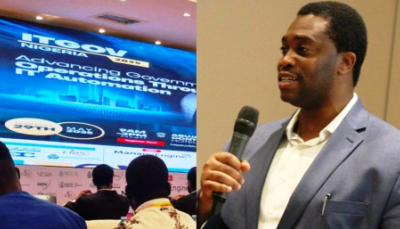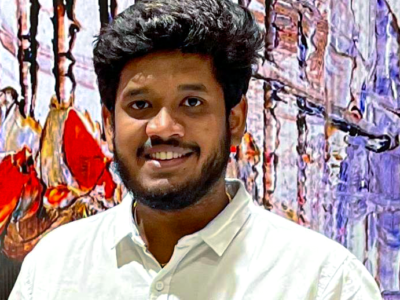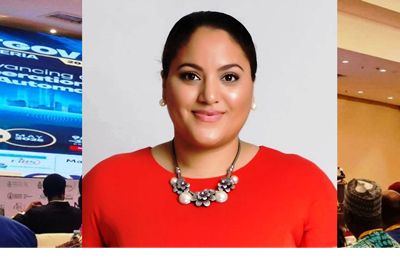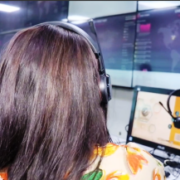A new life for NITDA
The December 2016 edition of IT Edge News with the title-cover: Pantami @ NITDA had inked the poser: “Will Isa Ali Ibrahim Pantami PhD be a transformational director general of the NITDA?” Pantami, a Professor of Computer Information System at the Islamic University of Madinah, had then spent less than three months in office as director general (DG) of the National Information Technology Development Agency (NITDA). For an agency enmeshed in numerous controversies, the new helmsman came to NITDA with a ‘clean-up’ brief and a ‘To-Do’ list of refocusing the agency to its original mandate. “It is no longer business as usual. NITDA is not a contract awarding agency,” he had publicly declared at the West Africa Convergence Conference (WACC 2016) in Lagos where he affirmed to re-commit the agency to its core mandate even as he was working on a formal roadmap. Also, he had publicly declared that NITDA’s new life would be fostered on capacity building, regulation and standardization; and local content. He would aggressively build internal capacity of NITDA’s workforce so that the agency could follow through with its mandate to regulate IT and ensure technology standardization. In the closing days of August 2017, IT Edge News sat with Dr Pantami in his office in Abuja to reflect on his 12 months in office. The questions were a checklist on all he had committed to when he was newly appointed. The responses were revealing on challenges of leadership in contemporary Nigeria and the possibility of reworking struggling agencies to become more impactful in reflection of their mandate. There have been distractions, but not sufficient to cause a detour from building internal capacity in the agency. In the last 12 months, NITDA has drawn blood. By insisting on pushing its mandate through as the custodian of government’s mission on IT, it had irked a lot of public sector players used to executing IT procurements outside of laid down procedures. Now, they must get NITDA’s approval on IT procurements as the law says. Also, they must adhere with the local content policy and executive order on ‘buy Nigeria’ or contend with a NITDA holding the statute on compliance. Things were not always this way until Pantami came to town with his ‘To Do’ list upon which he has built synergy for collaboration with other regulatory agencies including the Economic and Financial Crimes Commission (EFCC) and office of the Auditor General for the Federation to enforce NITDA’s mandate. Pantami often speaks of himself as a man on a burdensome mission to sanitize the NITDA and get it re-focused. This interview captures it all.
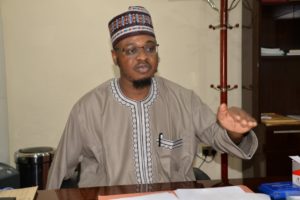
Pantami: No one can drive convergence alone. Even if there’s no convergence of regulation, then physically we should try to converge by collaborating and working together.
It’s about a year since you assumed office. What have been the challenges since you started?
As we know, challenges are inevitable in life and you can’t attain success without addressing challenges. If you ask me to summarize all the challenges I have faced in one word, then I will say: Distractions; that’s the word that can reflect the challenges in general. Delivering the core mandate of the agency itself is not a huge challenge but some other issues that could distract you from it, which are part of administration, bureaucracy, or dealing with illegal requests. These are the challenges that I summarize as distractions.
How have you managed the distractions?
What’s most important is to understand your responsibility. Anything that comes to you and if it is within the law and its part of the priorities of the agency and your mandate, there’s no problem; you can go ahead. But anything that you feel is not allowed by law or it’s not your priority or it’s in somebody’s personal interest that could be detriment to the interest of the agency, then you can turn it down and apologize as the case maybe or you can reject it out outright.
Managing public institutions in Africa not just in Nigeria is tough. You either play along or you refuse to bend. It appears bending is not what you subscribe to. Are you not worried that you are making enemies in trying to manage this public institution?
Making enemies is inevitable if you are doing what is right. If you do what’s right you will make enemies and the enemies will be the irresponsible and greedy people. If what you are doing is wrong, you will make enemies and your enemies will be responsible and upright people. So, it’s better for you to have enemies that are irresponsible, corrupt, greedy, and avaricious than have enemies that are responsible. So, every decision you take you will have both admirers and enemies, but what is most important is to constantly be in the company of good people; those that advocate for what is right and avoid what’s wrong. Secondly, according to an English adage, in a tree the sweetest fruits attract more stones. If there’s a tree and there are fruits, it’s the sweetest fruits that attract more stones. Why? Because it’s the sweetest! So, what is most important if you are to take a decision, do what is right, be polite in doing it and face the consequences.
“Before I came, NITDA was more of an administrative agency, there was no any serious technical challenge. [Today], NITDA is a knowledge-based agency; it’s an IT based agency not an administrative one and that’s the reality. If you look at the output of some of our younger staff in terms of their technical presentations, research and innovation you will be amazed.”
What will be your words for those who face a similar situation like yours regarding leadership and managing public institution in Nigeria?
My advice: if you are giving a responsibility, first and foremost, understand it intensively; study your responsibility and get it right. Secondly identify your stakeholders, seek their support and cooperation. Thirdly, whatever happens, contact other relevant stakeholders and experts, as the case maybe, and get their input before taking any decision. Sometimes, they could be within the agency or might be outside the agency. Lastly, which is very important, if you disagree with them or anything comes to you and you feel it’s illegitimate or it’s not right, apologize politely. If what you feel is right and is not in any way against the law or what you think can sustain your commission, agency or parastatal; and you feel it will add value to it, you can go to any place for it, lobby for it as long as your commission or agency benefits from it.
NITDA now appears more proactive in insisting that the industry stakeholders follow government’s agenda on local content. What is NITDA’s agenda within the framework of local content?
First of all, as you might have known, we have our strategic plan in NITDA; top on it is local content development and promotion. We need to develop our local content in quality and quantity and we need to promote it. Secondly, this is in alignment with the agenda of the federal government. Recently, the Acting President, Yemi Osinbajo before President Buhari came back to the country, issued an executive order which was titled ‘Executive Order 003’ where he mandated all MDAs to patronize local content, at least 40%.
When that executive order was issued we immediately mobilized stakeholders and established a standing committee where we feel we need to bring stakeholders onboard to see how we can work collectively. Firstly, to improve the quantity and quality of local content and also to see how we can enforce local content policy, because even before the executive order was issued, we had local content policy.
Some of the stakeholders we invited were Nigerian Computer Society (NCS), Computer Professions Council of Nigeria (CPN), Information Technology Association of Nigeria (ITAN), Association of Telecommunications Companies of Nigeria (ATCON) as well as Institute of Software Practitioners of Nigeria (ISPON) and Original Equipment Manufacturers (OEMs).
So we now have a committee of stakeholders and within the agency we have committees, departments and offices that are related to local content development and promotion, like the Office of National Content (ONC), and Office for ICT Innovation & Entrepreneurship (OIIE).
Furthermore, two weeks ago, I was in Lagos and I had a meeting with the OEMs and we discussed elaborately about their challenges and what they feel NITDA can do to support them. At least, 99% of them were in attendance and we discussed the issues elaborately and identified their challenges as well as the areas we could come in to support them. They also asked us to include them as part of the committee and we have done that.
However, their leadership has been part and parcel of the committee I established recently, so they requested we should be meeting quarterly with the leadership of the agency which I approved immediately. This is an indication that we’ve started working together.
Within the agency the Office for Nigerian Content Development in ICT (ONC) and eGovenment Development and Regulatory have been monitoring the compliance by MDAs. We have been following the budget appropriation and budget approval, we identify any IT project and we call the attention of the relevant MDAs to the patronage of local content. Some that have breached that, we wrote a letter and call their attention to the importance or necessity of patronizing local content.
We also had a meeting with the Bank of Industry (BOI) on the issue of local content and to patronize local content for the NPower, because when we saw they ordered the purchase of foreign ones, we wrote them a letter and after they saw the letter they came for the meeting. So, we are really monitoring their compliance.
If we call their attention and they fail to comply, we will inform the appropriate authorities officially about the breach of the executive order and the local content policy as well, but we always write it politely by calling their attention and reminding them about it. But when they fail to comply, just as drastic problems attract drastic solutions, then we will apply drastic solution to the drastic problem.

Pantami: Our mentality of feeling we must work under government sometimes is destroying our future.
What measure is NITDA taking to ensure there’s adherence to standard in the promotion of local content; does NITDA have in-house testing capacity to ensure that the devices meet required standard?
I think this is a very important question. To be fair with you, before I came, NITDA was more of an administrative agency, there was no any serious technical challenge. Even the people that joined the agency before, and came with technical capacity in the true sense of the word, they were brilliant, they were intellectually speaking, giants. But after joining the agency, there was no challenge. The agency was more interested in awarding contracts and consultancy works. So, the first thing we did when I came in was to improve the capacity of our staff. We identified brilliant ones among them and motivated them. We also introduced technical sessions in which researches are being conducted, papers are being presented and I have been attending all of them. Our staff from grade level 8 or even 7 up to 15, can come and make a presentation about the mandate of the agency, how to improve on the challenges and these have been supporting us in building the capacity of the agency.
Also, we introduced some courses, technical sessions including for even NYSC members under some departments within the agency in which we try to enrich the capacity of our staff. Additionally, we identified some gaps during some of our management meetings, where we feel we have a very serious vacuum that we can’t accommodate in-house. Because of this, the management mandated me to seek the approval of the Honorable Minister, in the absence of the board, to get some staff on secondments, so we brought some people on secondment in order to support some critical areas where we felt we have low capacity; as such this has supported the agency significantly. I cannot say that we can do everything 100%, but for sure the capacity has been increased significantly.
And when it comes to testing, we have been doing that and we are even trying to improve our facility for testing. That’s why as part of our 2017 budget, we plan to upgrade our labs; all of them, to try to make them world class laboratories that can test any equipment that’s produced in the country. So that’s what we are doing – build the capacity and provide the equipment. I think, for sure I can stand anywhere and say now that NITDA is a knowledge-based agency; it’s an IT based agency not an administrative one and that’s the reality. If you look at the output of some of our younger staff in terms of their technical presentations, research and innovation you will be amazed. Some published even papers in reputable international journals while some are in the course of publishing. So, all these things will make the agency more of a knowledge based one than an administrative one.
Do you envisage that under your tenure, we will get to the level where the NITDA will ensure that an IT device is tested and approved before it enters the market just like the equivalent of NITDA in Malaysia does?
For sure! We are not yet there, but we are trying to reposition the agency to be more of a technical one. Most of the OEMs have realized this and they have been coming. Just recently, one OEM produced a tab for primary and secondary schools. The tab has all the prescribed textbooks and a facility for e-learning were uploaded into it and was brought to NITDA to see and review. Also, someone brought a book on cyber security awareness for secondary schools and brought to us to see it before sending it to the ministry for publication. So, you see if we reposition the agency very well and people see that you can add value to their product then surely, they will come. Because, apart from endorsing your product, it is our responsibility to also give you publicity; it will make it easier for you. As far as I’m comfortable with what you have produced, it’s my responsibility to go out and at least notify the public about it and if that fails in that regard, I should be held responsible also, because we advise people.
Similarly, in connection to the complaints of people on indigenous contents, part of the issues we discussed with the OEMs was the complaint of quality of their products. To be fair with you not all of them, some of them, I can say their products are average while some are above average. They all agree with me and are working hard to improve it and some have already improved it. Even recently, some brought their laptops here and gave us the laptops to try it and assess. The price is not even that expensive; it’s not even up to N80, 000 and it’s a very good laptop really. Because of the complaint, they will soon establish customer care centres all over the country. They will establish one in Abuja and one in Lagos, so if you purchase any product and you have complaint about it, it’s their responsibility to fix it for you and not going elsewhere to fix it. So, this is part of the agreement, there must be customer service centres. The way we try to promote them and sell their products, if they fail to comply we will sanction them as well.

Pantami: Making enemies is inevitable if you are doing what is right.
What level of achievements have you made in implementing the local content policy?
We have made a lot of achievements actually and you know if the leadership of the country complies, then it is easier for you to convince others to comply. One of the commissions of the federal government under the presidency sent a memo seeking for approval from the Federal Executive Council (FEC), President Muhammadu Buhari was chairing the meeting and the memo was rejected because there was no NITDA’s approval. When the president was out of the country, another memo was sent from one of the ministries trying to purchase one software, the Acting President then, Prof. Osinbajo, chairing the meeting mandated the minister there and then to get in touch with the Minister of Communications, Barr. Adebayo Shittu to seek the approval of NITDA to review it, because we are the custodian of all these things. So, you see the President has complied even the Acting President has complied, so who are you not to comply? The level of compliance of the President and Vice President is more than anyone in this country. Under the Vice President office, there is a project to establish IT parks, the Special Adviser to the Vice President came here and said the VP said anything they want to do must be through NITDA. Even if they want to send a letter to him, it must be through the DG of NITDA because it is part of our mandate.
So, with this, I think it’s an encouragement and many MDAs are coming for NITDA’s approval even though many still fail to do that. When we notice, we always draw their attention to this. We believe in order to enforce our mandate, there’s need for synergy between NITDA and other agencies. This is why two months ago we went to the Economic and Financial Crime Commission, (EFCC) on a courtesy visit in which we sought for their cooperation to support us in enforcing this, which they complied 100 %. The Acting Chairman of EFCC even assured that no IT project at the commission will be executed without the clearance of NITDA. In addition, two weeks ago, he even asked his Head of IT Unit to come to NITDA and discuss about their IT project before they started.
Also, this month we were at the office of the Auditor General for the Federation, he also said henceforth no project at his office will be executed without the clearance of NITDA. To show to us his commitment to compliance, two weeks ago he phoned me, asking we sent a representative to be part of a preliminary meeting for their IT project. They wanted me to be represented in the belief that when I am represented, and it comes to any issue of compliance, it will be easier to manage. I sent my Director of Infotech and Infrastructure Solutions and he represented me in the meeting. The Auditor General for the Federation also told his directors if they go to anywhere to audit any IT project, the first thing they should ask for is NITDA’s clearance, so if there is no NITDA’s clearance it’s the first breach of the project. So, all these are ways we are trying to bring other agencies to work with us, because no one can do it alone except through collaboration.
Are you engaging the governments at state level on local content?
We serve as adviser to all states and local governments of the country, to be fair we are yet to reach out to them except through the media. But it’s part of my plans to reach them to advise them on the importance of patronizing our local content to improve our local industry. We are also planning to reach our business men in the country and investors within the country to invest in ICT, because now ICT is next to oil. So, we are planning to reach them, the way we always encourage them to invest in oil, to invest in gas; we’ve started the process of engaging them and to encourage them to invest in IT which I think it’s very critical. This will bring more challenge to the sector even for the local manufacturers, their quality must be improved, there’s no doubt about this.
What is your message to IT startups in Nigeria going to GITEX, what should be their focus?
The first thing they should focus on is to consider what they’ve achieved to be the beginning and not the end. If you start the process of learning and building your startup and you feel now you have arrived, that’s the beginning of your failure. Humble yourself and feel that this is my beginning; I’m just beginning to learn, whatever I achieve even if I emerge as the best, I’m just learning. So, humbling yourself will allow you to learn more and more, and be successful in the future. Being arrogant will ridicule you and destroy your future.
Secondly, they should also try to attend events and learn from it. If you are successful, humble yourself and build on it. if you are not that successful, humble yourself and learn from others and see how you will be successful in the future.
Thirdly, I want to encourage them, that if you have these skills, sometimes it’s not necessary for you to work under government. Our mentality of feeling we must work under government sometimes is destroying our future.
Life is about division of labor. Let us be represented in market places, in our farms, in government offices, and let’s get some to represent us in entrepreneurship. So, life is all about representation, we are not supposed to come under one umbrella or put all our eggs in one basket. So, I think those that excel in that should take it as an avenue to expand and recruit many more people and employ them to even at least support them or make them more comfortable even away from government. I’m not discouraging those working under government but not all should be under government, it should be division of labor.
How tough is it to manage regulation during convergence?
It’s sometimes tough but if there is collaboration it’s not that difficult. There are countries that have converged regulation like in the UK, US, Germany, however, in all of them IT is not part of it. The convergence is more of telecommunications, broadcasting and postal services, but IT is independent. But collaboration and synergy is necessary. No one can drive convergence alone. Even if there’s no convergence of regulation, then physically we should try to converge by collaborating and working together.


